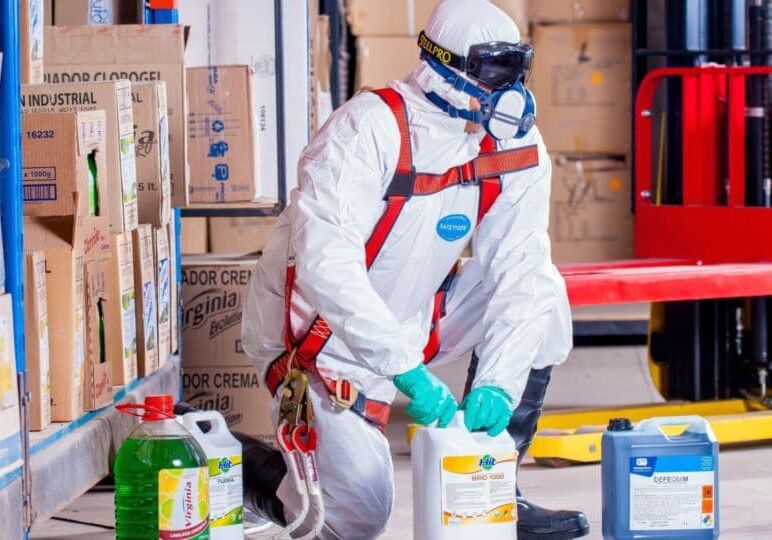From challenges to opportunities in chemicals

Asian Downstream Insights sits down with Khun Chokchai Montreeamornchet, Managing Director at REPCO NEX, an ASEAN asset performance solutions leader whose services range from general maintenance to integrated and digital solutions, to discuss where digitalisation will bring operators and the major opportunities for digital disruption in the energy and chemicals industry within Southeast Asia.
What does a typical day in your role look like? What are the biggest challenges?
Since REPCO NEX has recently expanded market to service external customers, one of the biggest challenges would be seeking growth opportunities. Therefore, we spend a lot of time approaching customers in petrochemicals and other industrial segments, which we have more than 20 years of experience in asset performance management, to introduce our solutions to help them solve their pains. Also, we study the trends to continue developing the technology that matches the market.
What are the major opportunities for digital disruption in the energy and chemicals industry within Southeast Asia?
The major opportunity arising from the so-called “digital disruption” has currently helped reducing costs and improving productivity. We have grasped such opportunity by utilising Digital Twins and Dark Factory. These digital disruptions have significantly driven our business competitiveness.
Can you elaborate on the concept of Industry 4.0 in the context of the downstream industry? How will this impact the industry in the short term?
Today, most industrial sectors have adopted digital technology to improve their business value chain under the concept of “Industry 4.0” or “Smart Manufacturing,” which requires data integration as an input for analysation aiming at increasing efficiency and gaining a competitive edge. The process of digitalisation also includes establishing the Smart Workforce system that helps improving human capacity.
With REPCO NEX’s 20-year experience in providing maintenance services to serve SCG’s downstream industry, we thoroughly understand what critical assets are. We also develop digital asset solutions promptly available by integrating our knowledge and expertise in Operation Technology (OT) and Information Technology (IT). We also introduce “Machine Learning” to design the data analytic models that help facilitate decision-making in order to move forward as a data-driven organisation.
How do you think digitalisation will add value to your organisation in the next phase of the energy transition?
The energy transition is a challenge faced by every industry. However, it is inherently a positive drive that will accelerate technological change in this field and urge the development of energy alternatives. This applies to all kinds of energy technology development, as one may see from the example of Smart Grid, which digitalises energy optimisation leading to power quality improvement and an increase in energy source efficiency.
Another example is the application of predictive data analytic to monitor critical assets, leading to a complete change in the asset strategy. This allows us to extend the turnaround interval, decrease inventory, and early detect abnormalities during the operation so that the operating conditions can be adjusted to prevent machine breakdown.
How do you evaluate the progress made by REPCO in the application of IIoT? How will this benefited operators?
REPCO NEX represents substantial progress in applying IIoT to develop sensors, software, and platforms. IIoT has been used to gather crucial data and parameters involving machines and operations. We have conducted major research and development (R&D) on various types of sensors to ensure that each sensor technology would provide accurate solutions to the problems occurring with a particular machine. This includes “SRODTEX,” the first vibration sensor for low-speed rotating machines. The acquired data and their analytics create advantages for our company by reducing costs and increasing productivity.

How important is culture when implementing AI into the business infrastructure?
Culture plays a major role in implementing any new initiative, including AI. REPCO NEX has engaged in the process of people (culture) transformation for more than five years by placing importance on both the hard side and soft side of management. We have the core competency in developing roadmaps for domain experts in each area to further their expertise, which will help with innovation development. Also, we encourage and support employees to have the confidence to challenge their works through senior coaching culture. Therefore, our transformation platform ensures strong alignment between different parties and processes when implementing AI.
How can downstream business leaders ensure that AI is accessible and understood across all parts of the business?
Culture transformation may be the core process in driving AI implementation. But more importantly, the workforce must gain understanding and knowledge regarding Operational Technology (OT) – the core know-how of the business. This will create the domain expertise which will drive the use of AI to optimally meet the business needs.
One of the biggest challenges the market faces is equipping the workforce to adapt to the pace of digitalisation. How do you empower your workforce to adapt to the digitalisation strategies needed to survive and thrive in the new normal?
In adapting to digitalisation, we must be able to identify its value to our organisation and the workforce. It is important to know what kind of benefits the workforce will gain from it, whether it would help increase efficiency, safety, and convenience. If the organisation can make sure that both the organisation itself and its workforce will gain benefits from the digitalisation strategies, the workforce will definitely be willing to adapt and sustain it in the company’s operation.
How can companies maximise sustainability outcomes in the next phase of digital transformation?
On top of focusing on sustaining their transformation journey, companies need topay attention to how their transformation impacts their sustainability efforts as well. REPCO NEX has systems and structures in place to help maintain sustainability. Our digital asset solutions integrate all digital technology and workforce together to make sure what the most valued deliverables are.
As digital technologies are increasingly introduced into operations, in which ways will they improve energy sustainability?
Digital technology will be the key to centralising all operation data, processes, and utilities. By using a unified platform, we can gain a holistic view and improve energy sustainability more efficiently. For REPCO NEX, we also ensure energy sustainability throughout the entire operation by adopting net zero emission, and energy and water utilisation management.
How important is cybersecurity as a business priority?
We acknowledge that cybersecurity has become increasingly important, especially on the IIoT connectivity. Therefore, we have established a cybersecurity system that complies with the international standard in order to prevent any risk on our system.
How have/can operators use(d) innovation to improve reliability and safety?
REPCO NEX provides asset performance solutions. We always prioritised safety and reliability. As for safety, we adopt the “Single Source of Truth” in the information management system, as well as develop robotic replacements to work in high-risk areas including certain inspections, and the operation of remotely operated underwater vehicle (ROV). We also adopt the machine learning system to build predictive analytical models to improve reliability.
How do you encourage greater diversity in the downstream industry?
Our supply chain is greatly diversified from Olefins to compounding. In any event, we can apply our solutions to the entire business supply chain. We believe other downstream players can make it happen as well; however, they need to focus on what drives the business competitiveness.
What will be your focus for the next six to 12 months? What are the new initiatives and technologies you will be looking at?
We have adopted the concept of vertical integration of digital transformation. We are willing to expand our digital transformation initiatives to drive business competitiveness in all dimensions include safety, reliability, and productivity.